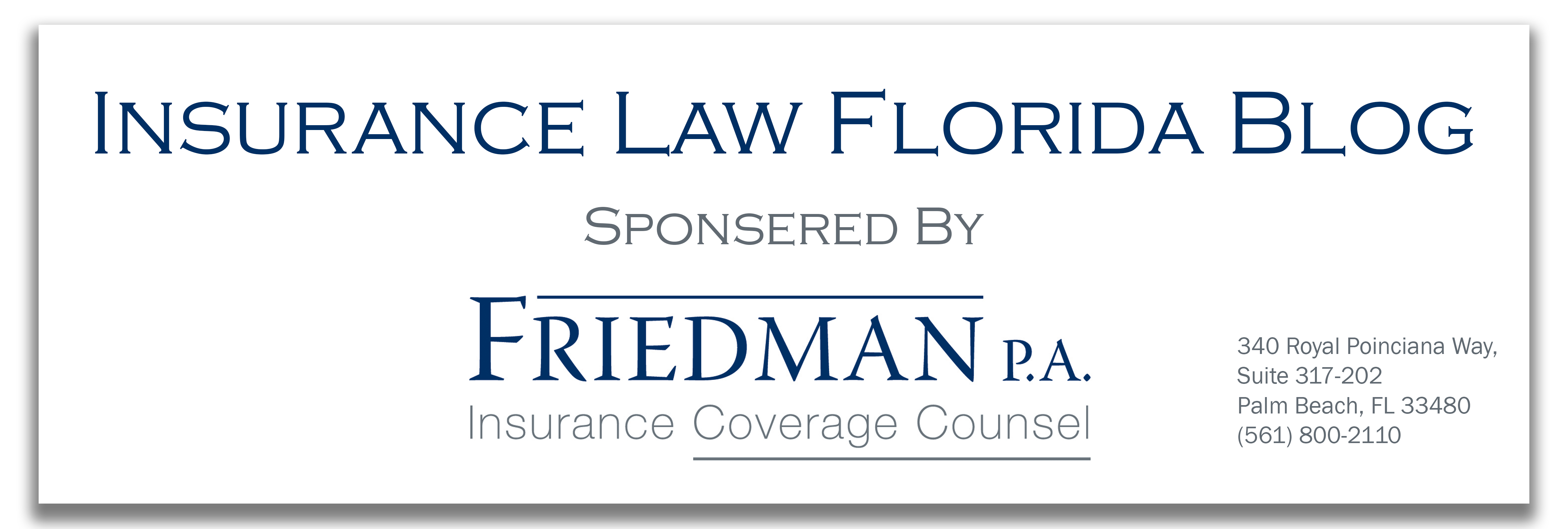No, all of that insurance industry money flowing into the Florida legislature has not led to a change in Fla. Stat. 627.428, Florida’s one-way attorney fee shifting statute. Loyal readers of Insurance Law Florida know that Fla. Stat. 627.428 allows policyholders to recover their attorneys fees upon the successful completion of coverage litigation. The statute’s fee shifting is one-way: insurers who win cannot collect their fees from policyholders.
In the recent case of Indiana Lumbermens Mut. Ins. Co. v. Pennsylvania Lumbermens Mut. Ins. Co., No. 4D11-3722 (4th DCA Mar. 6, 2013) (you can call it Lumbermens v. Lumbermens for short), Florida’s Fourth District Court of Appeals held than a defending and settling insurer could recover Fla. Stat. 627.428 fees after successfully forcing another insurer to pick up the tab. The reason that the insurer was able to obtain Fla. Stat. 627.428 fees was because, after it had settled the underlying case, it obtained an assignment of rights from its own insured to go after the non-defending insurer. Since Fla. Stat. 627.428 allows any assignee to obtain Fla. Stat. 627.428 fees when it steps into the shoes of a policyholder, the Fourth DCA reasoned that an insurer as assignee should be no different.
It will be interesting to see whether this decision opens up new opportunities for defending insurers to seek contribution from non-defending insurers in Florida. Florida law is somewhat unusual in that it does not allow a defending insurer to bring a contribution action against a non-defending insurer to force the non-defending insurer to pay its fair share of the defense costs. The justification for this rule is that, since the duty of each insurer to defend its insured is personal, contribution is not allowed between insurers for expenses incurred in defense of a mutual insured. See, e.g., Argonaut Ins. Co. v. Md. Cas. Co., 372 So. 2d 960, 963 (Fla. 3d DCA 1979). The problem with this rule is that, where there are multiple policies triggered by a particular claim (such as when there is a long-tail claim that triggers successive policy years with different insurers, or when additional insured coverage triggers another party’s policy as well as the policyholder’s policy), each triggered insurer is incentivized to refuse to defend and “free ride” on the defense offered by the other insurer. Since the defending insurer cannot later seek contribution from the non-defending insurer, the non-defending insurer’s bad deed goes unpunished. This can be a problem for policyholders, since this rule encourages insurers to point the finger at each other and hope the other insurer steps up and defends.
If an insurer can defend and settle the claim, and then seek back-door contribution via an assignment of rights from its own insured, this might help alleviate the free-rider problem. But it is unclear from the 4th DCA’s opinion on what basis the defending Lumbermens obtained a judgment against the non-defending Lumbermens. It appears from the decision that the defending Lumbermens was denied the ability to recoup its defense costs, under the rule stated in Argonaut cited above, but it was able to recover the amount it paid in settlement of the underlying case. But if the Argonaut rule is limited to defense and not indemnity payments, then the defending Lumbermens should have recovered on its contribution claim, which does not bring with it a right to recover Fla. Stat. 627.428 fees. If Lumbermens paid the full amount to settle the underlying case, then it is unclear what damages the policyholder could have assigned, since the policyholder would have been made whole by the defending Lumbermen’s.
If anyone has any insight on this case that they would like to share, please feel free to drop me a line and I will write a follow-up post. It seems to be that there is more to the story that is not included in the 4th DCA opinion. Or perhaps the lesson is simply that when the battle of Lumbermens v. Lumbermens breaks out, it is best to just get out of the way.
